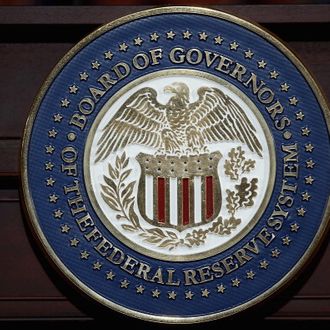
The Federal Reserve confirmed on Tuesday that hackers stole information from an internal website on Sunday, but it didn’t say how the attack succeeded and it certainly didn’t confirm who carried it out — although the smart money is on Anonymous. That loose-knit group of hackers tweeted on Sunday that it had posted the personal information of 4,000 bankers as part of what it’s calling Operation Last Resort, which it’s carrying out in response to the death of Reddit co-founder Aaron Swartz. The information it posted, and the information the Fed lost, sound very similar.
Anonymous’s original document has been taken down (a mirror is still available), but the information it contained basically consisted of the names, phone numbers, addresses, e-mail addresses, and other contact information for some 4,000 bank executives. Per Reuters, that’s just what the Fed described in a memo alerting bankers of the breach:
The Fed declined to identify which website had been hacked. But information that it provided to bankers indicated that the site, which was not public, was a contact database for banks to use during a natural disaster.
A copy of the message sent by the Fed to members of its Emergency Communication System (ECS), which was obtained by Reuters, warned that mailing address, business phone, mobile phone, business email, and fax numbers had been published.
The Fed spokeswoman who confirmed the breach to Reuters downplayed its seriousness: “The Federal Reserve system is aware that information was obtained by exploiting a temporary vulnerability in a website vendor product,” she said. “Exposure was fixed shortly after discovery and is no longer an issue. This incident did not affect critical operations of the Federal Reserve system.”
But even if the hackers only took non-crucial information, and even though the section of the bank’s site that was breached was not the same as the one that handles trillions of dollars worth of transactions every day, the goal is to send a message that the most secure institutions aren’t infallible. Remember when they took down the website for the CIA? It’s a good show, but it’s still just a show — and with things like economic stability on the line, that’s probably for the best.





























